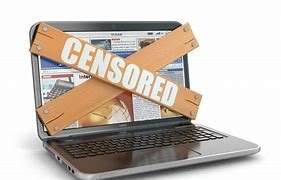 by Alagi Yorro Jallow.
by Alagi Yorro Jallow.Fatoumatta: This past week has been replete with drama. Republican and Trumpian agitators stormed the Capitol Hill in America, and in that very act, pissed on the long venerated American democracy. Following Capitol Hill’s desecration and the violence that ensued, Big Tech companies, Facebook and Twitter, suspended Trump’s social media platforms indefinitely. They said that President Donald Trump used those platforms to incite his Trumpian base and the public, arguing that Donald Trump has First Amendment rights on Facebook and Twitter. Although The First Amendment regulates the relationship between citizens and the government, not private companies like Twitter. A day down, in a perhaps unrelated development, WhatsApp rolled out a new privacy policy requiring users to permit it to share data with Facebook, or exit the platform.
These acts have touched off a debate on tech regulation, free speech in the age of the internet, and online censorship. One such debate is ongoing on social media– we are pitting. One key question that we are grappling with is a private company’s (with publicly traded stock) power to censor speech.
Fatoumatta: I am not too fond of President Donald Trump. He represents everything vile. He is the incarnation of the western world’s domineering inclinations that resulted in history’s grossest evils, Viz. slavery, colonialism, neocolonialism, and metacolonialism. (Refer to Franz Fannon and his thoughts on coloniality). He is Friedrich Nietzsche’s superman!
However, as Malcolm X said, I am for truth, no matter who says it; I am for justice, no matter who it is for or against; I am a human being first and foremost, and as such, I am for whatever benefits humanity as a whole.
In his book “Free Culture: How Big Media uses Technology and the Law to Lock Down Culture and Creativity,” Lawrence Lessig” rails against the concentration of power in big tech companies and calls for a reform in the IP Law Regime.
Fatoumatta: Some folks believe that a private tech company like Facebook reserves the discretion to ban accounts on its platform in the ongoing debate. Is that so? Maybe, maybe not. Lessig calls for a balance between anarchy and control. In making his case, he takes us back to the pre-Aeroplane years. The law then held that a land owner’s rights to his land extended down below to the middle of the earth and upwards, to an indefinite extent. However, the invention of the airplane upended that tenet.
In 1945, two farmers, Thomas Lee and Tinie Causby began losing their chickens thanks to low-flying Aircraft. The terrified chickens could fly to the barn walls and die in the wake of the drone of the overhead Aircraft. They filed a lawsuit in a federal court, saying that the govt was trespassing on their land. The airplanes never touched their land, however. However, if it was confirmed that their land reached upwards to an indefinite extent, any aircraft traversing the airspace above their land was trespassing!
The supreme court granted them an audience. The court acknowledged that it is an ancient doctrine that common law ownership of land extended to the periphery of the universe, except for a judge known as Douglas, who differed.
“That doctrine has no place in the modern world,” he riled. “Common sense revolts at the idea!”
Furthermore thus, the ancient doctrine was upended. The private interest of the farmers would not be allowed to defeat an apparent public gain.
According to the dictates of common sense, there comes a time when a proprietary nature’s rights outgrow their owners. The fact that Michael Zuckerberg is the inventor of Facebook does not in itself entitle him to decide whom to ban from a social media platform that has come to supersede its creators. In any case, the evolution of the social media platform has taken the collective genius of people of all stripes from across the world – because improvements on the website are based on data collected from our use of the platform. Therefore, a platform like Facebook can be said to have moved from a private interest to the ordinary realm.
Fatoumatta: Yes, without regulation, such a platform descends into anarchy. Alternatively, it can be exploited in ways that are detrimental to all people’s peaceful coexistence in the world. But, having grown thus, should the company be left to self-regulate, or that responsibility should be referred to the respective government(s)? To be continued.
NB: Over to you, Facebook analyst and testable social media activists.
 by Alagi Yorro Jallow.
by Alagi Yorro Jallow.
 by Alagi Yorro Jallow.
by Alagi Yorro Jallow.
 by Alagi Yorro Jallow.
by Alagi Yorro Jallow.
Ma sha Allah great and thanks for sharing